Vandoren Interviews Band Directors from Around the Country: Dallas, TX
with Band Director Caitlin Schmidt
Date Posted: August 27, 2018
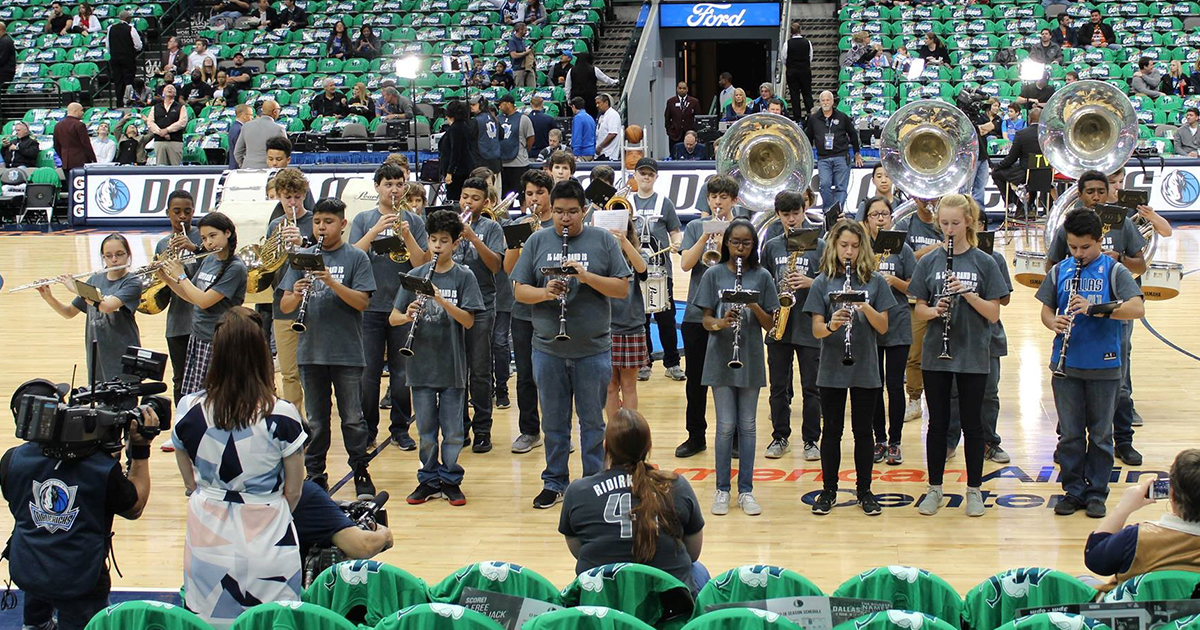
Where and what grade levels do you teach?
I teach at J.L. Long Middle School in Dallas, TX. We are in the east-Dallas in Dallas iSD. I teach 6th-8th grade; all of our beginner woodwind classes as well as our varsity level ensemble.
What is your teaching philosophy when approaching beginning clarinet and saxophone?
For beginning clarinet and saxophone, I feel like a lot of people skip the really essential parts, especially with saxophone, making a great tone. I didn't learn things like overtones, which is a huge philosophy of mine when I teach my beginners now until I was almost in college. If I had learned those things when I was in 6th grade, my sound would've been instantaneously better. What's interesting is one of your performing artists, Sarah Roberts, was my first teacher in college and she was the one that taught me how to use overtones to improve my overall sound. I use that all the time with my beginner saxophones now.
For clarinet, it's all about air. Also focusing on the voicing like with my saxophone class- thinking the syllable “e” or like they’re a “hissing cat”- the kids love that. My philosophy with that is all of my 6th-grade classes I focus on tone, but especially with my 6th-grade woodwind classes, focusing on how to develop a good tone using advanced techniques. Making sure that people don't think just because these are advanced techniques that people don't learn until they're in high school or college doesn't mean they're not applicable for our beginners.
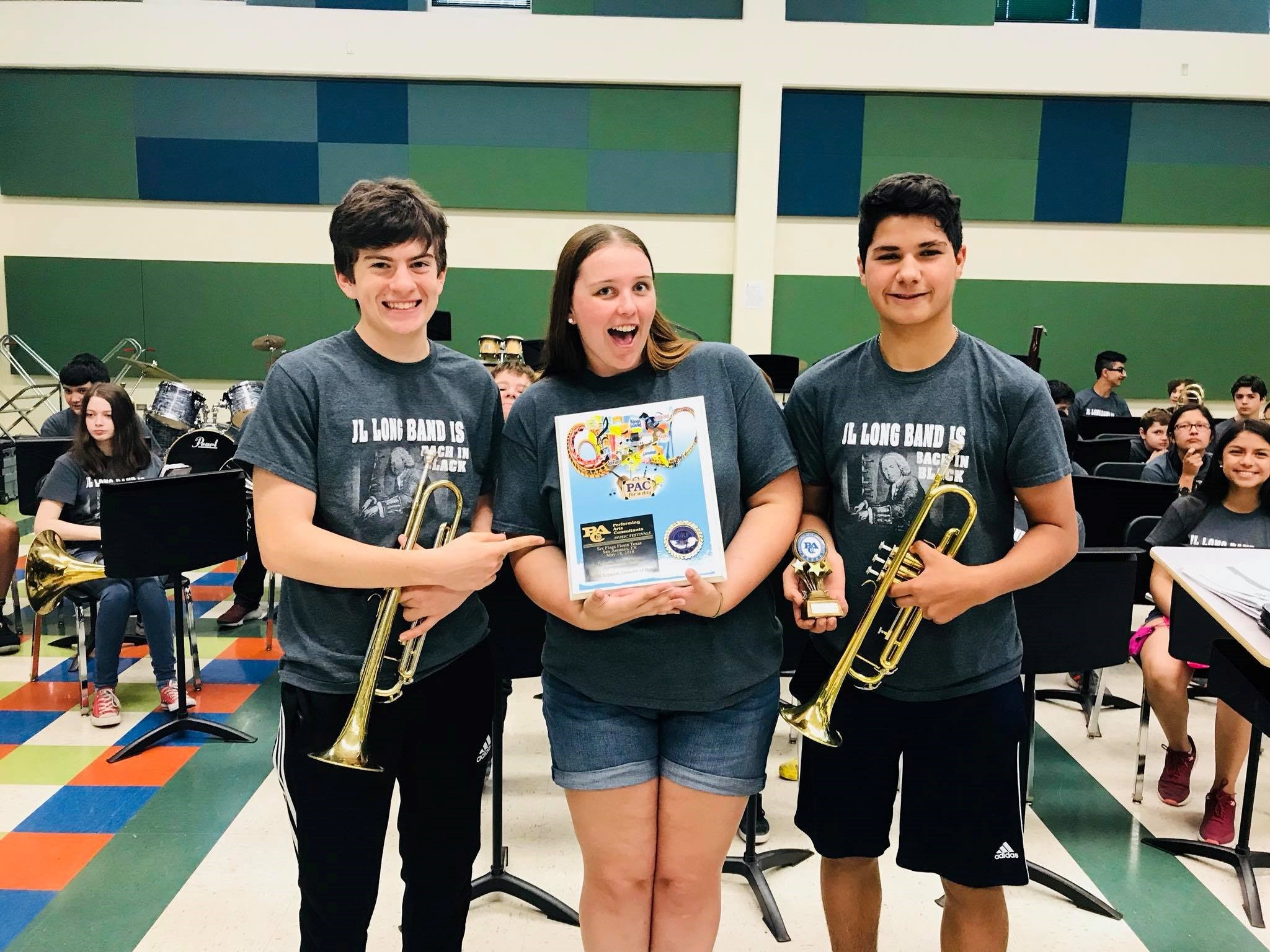
What would be a phrase that you would tell your beginning clarinetists?
For my clarinetists, I always just tell them, break the clarinet! Use so much air that you're going to break the clarinet! I also have them put their swabs in the bell and they try to play a sound that makes them use more air. Then we'll pull it out and they have this beautiful sound. They can hear and feel the difference internally as well. Once we've done that a couple of times in the middle of the year, I'll say 'Play like you have the swab in your bell.' Then they'll remember what that feels like.
For saxophone?
I always tell them voicing. For overtones, that's all we talk about for the first 2 or 3 months. What does your throat feel like when we play? We also do a lot of singing. Sing the note, then play the note...it should feel good and natural.
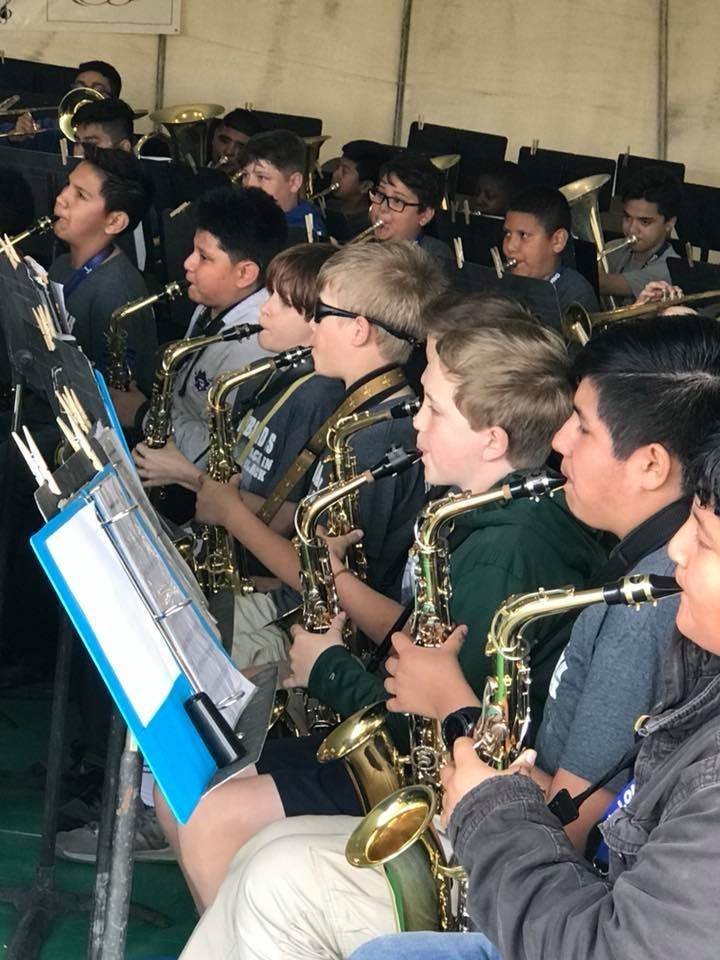
How do you have your students get a beautiful sound from day one?
I do a lot of modeling. I'll play, you play kind of thing. I'll ask if they're matching me or not. Every single day, especially in the first 3 or 4 weeks, I go around to each kid and check their setup. If they don't have the ligature on correctly, if the reed's chipped, if the reed's not on correctly, all of that stuff. I think that's crucial that you check it with them so that they can see what it's supposed to look like and they see the fixes you do instead of you standing in front of the classroom. For the first 3 weeks, I'm really hands-on with them and that's helped develop that balance because they're consistent every day. Consistency is key, but also making sure they're setup is correct every day and doing the modeling.
When are you able to start talking about concepts like balance and blend and things like that with your beginners?
We try to approach that around November when we're getting ready for our winter concerts. I spend the first 2 months of every beginner class focusing on if the students are making a good sound individually. I use what's called "Levels of Listening." I got this from our high school band director, Chris Evetts. He uses it throughout high school with our kids so the entire program from 6-12 gets levels of listening.
For the first couple of months, we're just level 1 which is just listening to yourselves and seeing the best sound you can make. Then level 2 is listening to our neighbors on either side of us. And then when we get to level 3, we're listening to the whole group and trying to balance with them. When we're preparing for our winter concert, we don't want to have that typical 6th grade band sound- everyone playing as loud as possible all the time
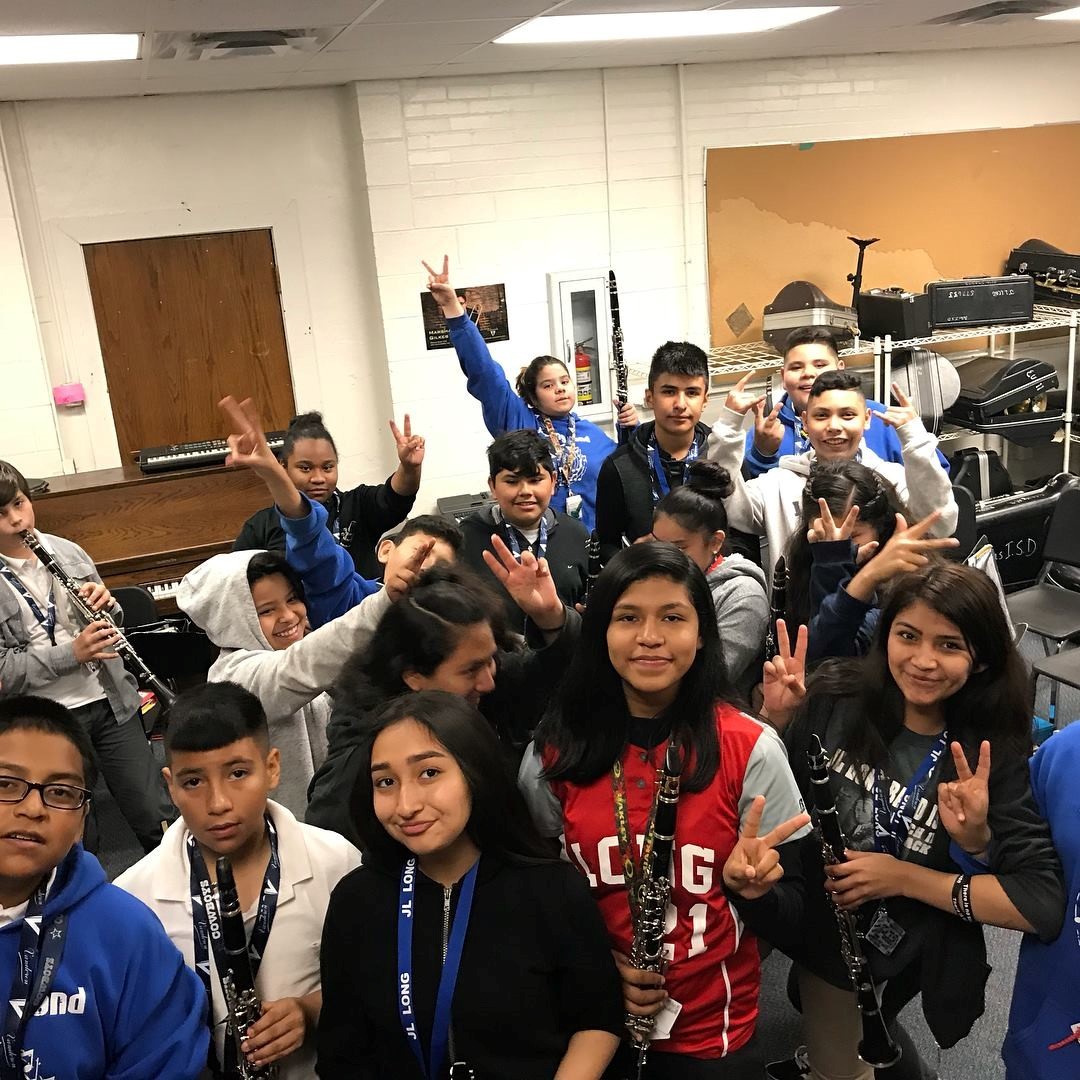
Have you ever used JUNO reeds in your classroom? If so, what have you thought about them?
I think they're great! We got introduced to JUNO reeds about 3 years ago. Vandoren did an appointment at TMEA. We signed up and all went. They let us try the different reeds and I was super impressed with the JUNO reeds. For a long time, we were using the orange box Ricos and they just weren't as consistent. The JUNO reeds were really consistent and they had a better tone quality right off the bat than the Ricos, in my opinion. I would play on the JUNO reed, even as a professional if I was in a pinch. I feel it would make me sound pretty decent, where I feel differently with other beginner reeds. I was really impressed with them. I think they have a really good heart, too. They last a lot longer than some of the other reeds.
How have you found the students' reaction to it?
The only thing they notice is it's harder for them to wear them out. It takes them a lot longer for them to start sounding bad. The other reeds, maybe a week. These reeds can go 2, 2.5 weeks. They do notice a longevity. They'll say "it's a bigger bang for my buck."
We sell the kids reeds in class. They prefer buying the JUNO reeds than the other reeds.
"The most key factor for getting kids to stay in band is making it fun, obviously, but also making sure they're successful. If the kids are successful, they're going to have fun doing whatever it is." - Caitlin Schmidt
What is the greatest challenge you've faced as a middle school band director and how have you overcome that?
Our biggest challenge is not unique to us, it's pretty common in schools, is how we don't have a budget to buy the things we need to buy. We do a ton of fundraising, but I also do a lot of bargain shopping. When you compare the cost of reeds, these orange box reeds are cheaper, but these JUNO reeds will last longer. It's looking at longevity in terms of budget.
I also do a ton of Donor's Choose as well. I get $15,000-20,000 every year from projects that I put up. That's where the majority of my problem solving comes from Donor's Choose and fundraising.
Where did you first hear about Donor's Choose?
It was my first year teaching and one of the teachers at my school did a Donors Choose and got brand new iPads. I went online and saw Donors Choose were partnered with WWBW and Amazon - I could buy everything! In fact, about 5 or 6 weeks ago, I got a bunch of Vandoren M13 and AL3 mouthpieces donated through donors choose. I've gotten a ton of things donated. For the past 6 years, it's probably totaled around $60,000.
What are some method books you would recommend to beginning clarinet and saxophone students?
My professor in college, Dr. Nestler, he wrote an overtone book that came from his professor, Eugene Rousseau. It’s a fantastic book to utilize with all age groups. I use the Essential Elements book as well to help keep all my beginner classes together as well as the Rubank Advanced Methods books.
For my clarinet students, again, I use the Essential Elements and the Rubank Advanced Methods books with all my beginner classes to keep them all on the same page. Then I pull certain supplemental exercises from the 40 studies for clarinet. I found a new book at TMEA two years ago and I think it's a really good book called Musical Mastery. Alicia Desoto helped write these books along with Kathy Johnson, Asa Burk, Chris Meredith, and Dominic Talanca. I went to college with Alicia and when she introduced it to me, I thought it was great instantly. It’s a methods book written by band directors for successful beginner band instruction. It’s top notch and would recommend it to anyone!
What can be done to encourage students to continue with band after their first year and beyond?
The most key factor for getting kids to stay in band is making it fun, obviously, but also making sure they're successful. If the kids are successful, they're going to have fun doing whatever it is. Even small successes should be celebrated. A lot of times kids will say they didn't want to play a certain instrument, or they wanted to play percussion…well, “drums”. I always tell them, 'Wouldn't you rather play an instrument you're going to be good at because that's more fun in the long run?' When they try it a little bit, they come to the realization that they do like it. We have about a 97% retention rate. It's worked well for us.
I also make sure at the end of the year they're a music appreciator, they're not just a "musician." I want to make sure they have a love for all things music. Outside live music, the music we don't play in band, pop music, rock music, anything that I can get them exposed to that will get them to love music and be an advocate for us when they're community members and they're adult music lovers and supporters. Chances are 9 out of 10 of these kids aren't going to play an instrument in college or after college so if we can get them to appreciate music and be advocates for us, then we've done out due diligence as band directors, teaching them to love music and use it as an outlet.
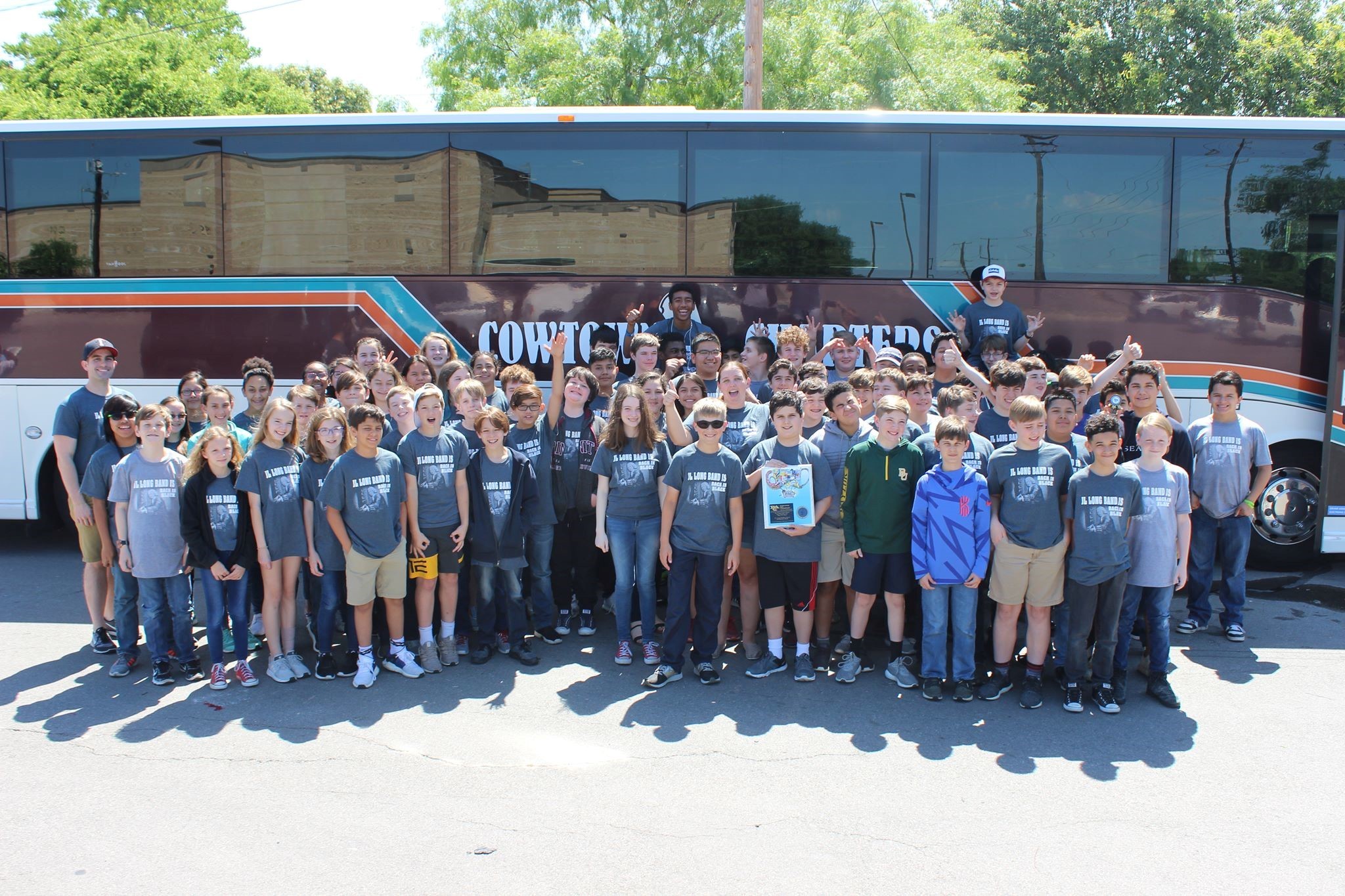
What are you really proud of in your program?
The biggest thing we're proud of is the growth. I've been a band director here for 7 years. When I got here, we had about 100 kids in our program and now we've got about 350-375. That's the thing I'm proudest of- getting more kids involved in band and giving them a place to feel they belong. Oh and we're getting a brand new band hall built for us next year! Very excited about that too!
Subscribe to the We Are Vandoren E-newsletter (WAVE) to receive 4 weekly articles for Performers, Students, and Educators